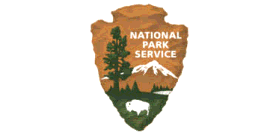 Nigeria’s National Parks Poised for Growth as New Leadership Highlights Untapped Tourism Potential
Nigeria’s National Parks Poised for Growth as New Leadership Highlights Untapped Tourism Potential
Dr. Kingsley Ononogbu, the newly appointed chairman of Nigeria’s National Park Service, has cast a spotlight on the country’s tourism sector, emphasizing its growing prominence alongside Nigeria’s major economic drivers. Speaking from Umuahia, the capital of Abia State, Ononogbu conveyed a message of optimism about the vast and largely untapped potential of Nigeria’s natural tourism assets.
According to Dr. Ononogbu, Nigeria is blessed with a wealth of natural attractions, including the nine officially recognized national parks and an additional 15 to 20 lesser-known sites that remain off the mainstream tourism radar. He envisions these combined resources as a foundation for positioning Nigeria as a globally competitive tourist destination, capable of attracting both domestic and international visitors.
Highlighting the strategic approach ahead, the chairman stressed the importance of first conducting a comprehensive assessment of existing parks and tourism sites. This evaluation will identify immediate priorities for development and those requiring longer-term investment, ensuring that budgetary allocations for the coming fiscal year are aligned with the sector’s needs.
“We will tackle the sites ready for immediate action head-on, while those needing funding will be incorporated into next year’s budget planning,” Ononogbu explained. This pragmatic roadmap aims to accelerate progress by focusing resources where they can have the most immediate impact, while laying groundwork for sustainable growth.
Beyond infrastructure and funding, raising public awareness emerged as a key pillar of the chairman’s vision. He noted that many Nigerians remain unaware of the diversity and richness of the country’s national parks, which hampers visitation and support. To illustrate this gap, he pointed to a small but significant park located in Abuja, the Federal Capital Territory. “If you have experienced a wildlife safari in Kenya, as I have, you might find it hard to believe that such a park exists right here in Nigeria,” he remarked, underscoring the need for better promotion and education about local natural treasures.
This candid comparison to Kenya’s renowned safari industry is telling. Kenya’s success in wildlife tourism is built on well-maintained parks, strong international branding, and community engagement—elements that Nigeria’s National Park Service appears eager to emulate. By spotlighting Nigeria’s own unique offerings, Dr. Ononogbu is signaling a shift toward more proactive management and marketing strategies that could unlock significant economic and social benefits.
For the African tourism sector, Nigeria’s renewed focus on its national parks represents a promising development. With a population exceeding 200 million and a growing middle class, Nigeria offers a vast domestic market for nature-based tourism. Moreover, the country’s diverse ecosystems—from savannahs and rainforests to wetlands and mountains—provide a rich canvas for developing varied and authentic wildlife experiences.
However, challenges remain. Nigeria’s parks have historically suffered from underfunding, limited infrastructure, security concerns, and low international visibility. Addressing these issues will require coordinated efforts between government agencies, private sector partners, and local communities. Dr. Ononogbu’s emphasis on a clear overview and targeted action suggests a more strategic and data-driven approach is underway.
As Nigeria charts this new course, travel professionals and tour operators should watch closely for emerging opportunities. Enhanced park facilities, improved accessibility, and effective marketing campaigns could soon make Nigeria a more attractive destination for eco-tourists, adventure travelers, and cultural explorers alike. This evolution aligns with broader continental trends, where African countries are increasingly leveraging their natural heritage to diversify economies and promote sustainable development.
Ultimately, Dr. Ononogbu’s vision reflects a growing recognition that tourism is not just a leisure activity but a vital economic sector with the power to generate jobs, foster community development, and preserve biodiversity. By unlocking the potential of both recognized and unrecognized parks, Nigeria could soon join the ranks of Africa’s leading wildlife tourism destinations, offering fresh experiences that complement the continent’s established safari circuits.
